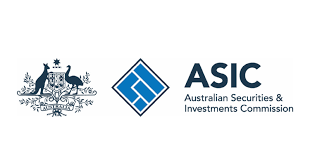Blog

Forex Broker Regulation: Understanding the Role of Regulatory Bodies
While many traders focus on choosing the broker with the tightest spread or highest leverage, ensuring your funds are safe should be your highest priority. All traders should understand how brokers are regulators to prevent potential issues. Forex broker regulation is the oversight and supervision of brokers by regulatory bodies to ensure fair and transparent trading practices, financial stability, and investor protection. This article will explain the importance of forex broker regulation, the role of regulatory bodies, and how traders are safer trading with well-regulated brokers.
The Importance of Forex Broker Regulation
The goal of forex broker regulation is to provide a safe and secure trading environment by fulfilling the following:
Investor Protection
Regulatory bodies enforce rules and regulations to safeguard the interests of investors. They ensure brokers adhere to fair trading practices, maintain segregated client accounts, and provide a secure trading platform, protecting traders' funds and personal information.
Financial Stability
Regulated brokers are subject to stringent financial requirements imposed by regulatory bodies. Requirements include maintaining sufficient capital reserves, regular financial reporting, and audits. Ensuring brokers have the necessary funds to meet client obligations, reducing the risk of insolvency and potential loss of client funds.
Market Integrity
Regulatory bodies are crucial in maintaining market integrity by preventing fraudulent activities, market manipulation, and insider trading. Regularly monitoring brokers' activities, investigating complaints, and taking disciplinary actions against those violating regulatory standards help regulators reduce the chance of clients losing their funds.
Transparency and Disclosure
Regulated brokers must provide transparent information to clients. This includes disclosing risks associated with forex trading, clearly stating trading costs, providing access to historical trading data, and ensuring transparent order execution.
Role of Regulatory Bodies
Regulatory bodies are responsible for overseeing the operations of forex brokers and ensuring compliance with regulatory standards. Some prominent regulatory bodies in the forex industry include:
Financial Conduct Authority (FCA)
Based in the United Kingdom, the FCA is one of the most reputable regulatory bodies. It enforces regulations to protect consumers, maintain market integrity, and promote competition in the financial industry.
Securities and Exchange Commission (SEC)
The SEC oversees the securities industry in the United States. While it primarily regulates securities and monitors forex brokers operating within its jurisdiction.
Australian Securities and Investments Commission (ASIC)
ASIC regulates financial services in Australia, including forex brokers. It ensures fair and transparent trading practices and protects investors.

Cyprus Securities and Exchange Commission (CySEC)
As one of the most popular jurisdictions for forex brokers, CySEC regulates brokers operating in Cyprus. It enforces strict compliance with EU financial regulations.
The Vanuatu Financial Services Commission (VFSC)
The VFSC operates under the Vanuatu Financial Services Commission Act. It is known for maintaining high regulatory standards and fostering an environment conducive to business growth and innovation.
Benefits of Trading with Regulated Brokers
Trading with regulated forex brokers offers numerous advantages for traders:
Fund Security
Regulated brokers must segregate client funds from their operational funds, reducing the risk of misappropriation or misuse of client funds.
Investor Compensation
In the event of a regulated broker's insolvency, regulatory bodies often provide compensation schemes to protect eligible traders, reimbursing a portion of their funds.
Dispute Resolution
Regulated brokers are subject to the oversight of regulatory bodies, providing a platform for resolving disputes and complaints. Traders can escalate issues to the regulatory body for impartial investigation and resolution.

Compliance with Standards
Regulated brokers must adhere to strict standards and regulations, ensuring fair trading conditions, transparent pricing, and reliable order execution.
Professional Conduct
Regulatory bodies impose codes of conduct on brokers, promoting ethical behavior, transparency, and professionalism.
Forex broker regulation is vital to the forex trading industry, providing crucial investor protection, financial stability, market integrity, and transparency. Trading with regulated brokers offers traders peace of mind, as their funds are safeguarded, and they have recourse in disputes. When selecting a forex broker, verifying their regulatory status and choosing a broker regulated by reputable and trustworthy regulatory bodies is imperative. By trading with regulated brokers, traders can confidently focus on their trading strategies, knowing they are operating within a regulated and secure environment.




